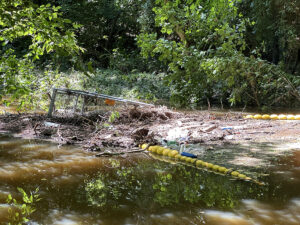News
Program director makes tech connections
Environmental, Sound Rivers, Tar-Pamlico Watershed
Posted on April 17th, 2025
Social mapping could be useful for future environmental work. N.C. State University researchers demoed their new software at the recent NC CCAPE workshop.
Sound Rivers Program Director Clay Barber took a break from stormwater last Friday to make some technological connections that could aid in future Sound Rivers work.
The North Carolina Center for Coastal Algae, People and Environment (CCAPE) invited environmental stakeholders to a workshop last week to talk about their work and test out their new software aimed at creating connections to address environmental concerns.
“They demonstrated some new technology they’re working with, which was basically a social mapping program — imagine LinkedIn and a typical hierarchy chart—and the goal was to connect as many people and partners along the coast in the work that they’re doing,” Clay said. “So, we were all making a profile with the work you do, skills you have, the people you know and how you know them, and it analyzed your connection to people you may or may not know, but are working on related things. So, if a person saw a harmful algal bloom, they might contact anyone of these organizations that show up on the map and get it reported to DEQ.”
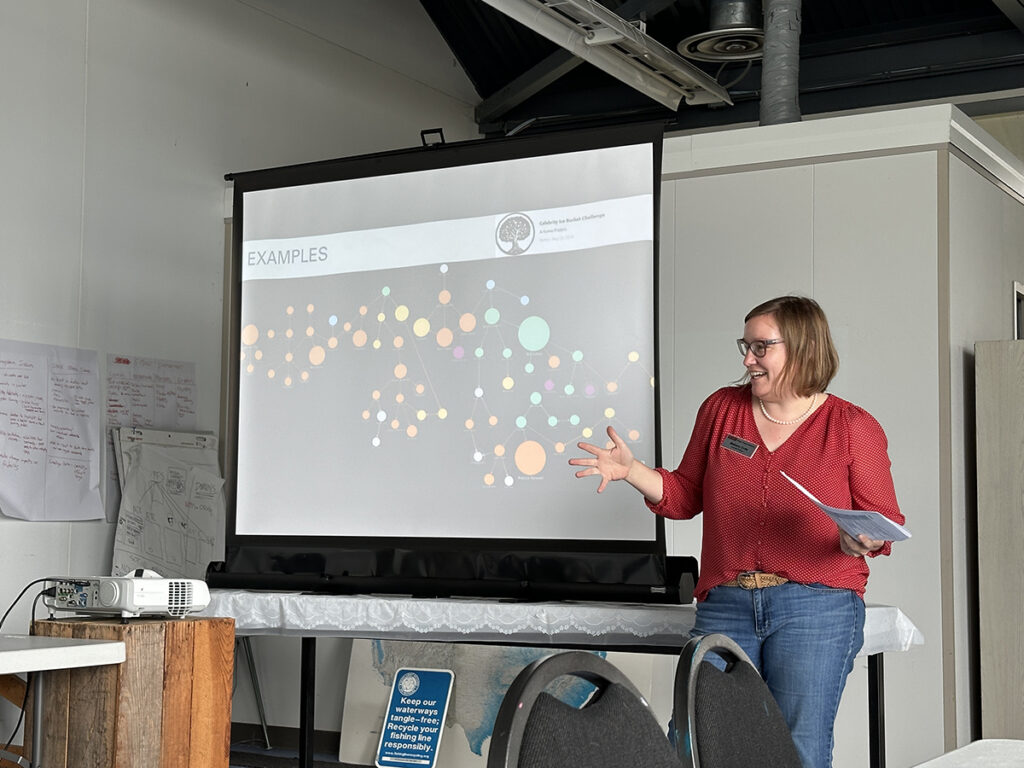
The NC CCAPE event was held by N.C. State University Associate Professor Bethany Cutts and other researchers whose work includes addressing public health and environmental challenges associated with harmful algal blooms in coastal waters.
“It was cool to be included in their testing of new technology — the tech itself is great,” Clay said. “If everybody in our networks was on it, it would be giant connection of people. It was great to help them with something they’re researching.”

Clay also walked away with a fun, and impactful, tabletop demonstration: the evolution of an algal bloom: a series of mason jars with added powders that represent the stages of an algal bloom.
“That’ll be fun to use at an event,” he said.
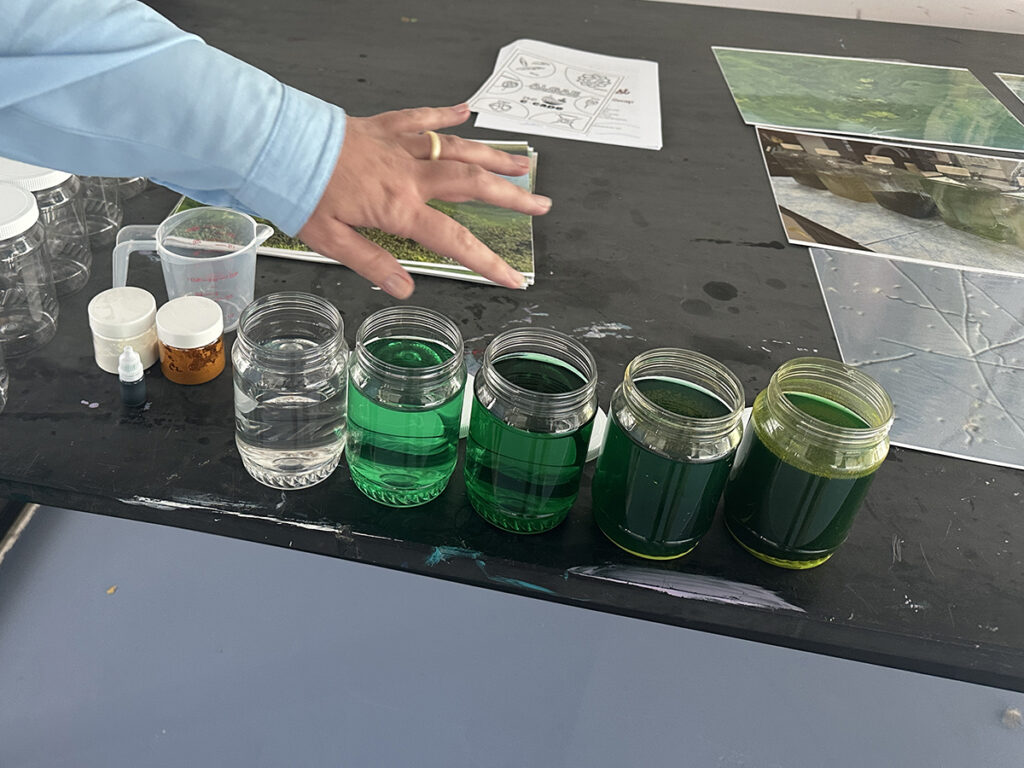
Related News
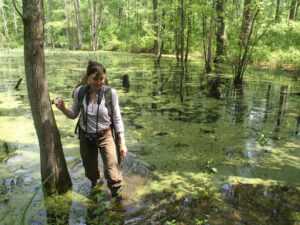
Public hearing will determine the fate of many NC wetlands
June 26th 2025
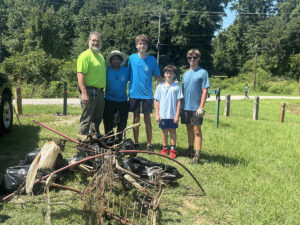
Clayton gets first official trash-trap cleanout
June 25th 2025
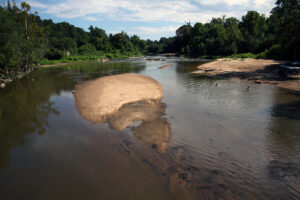
Bill passed by NC House threatens public health, environment
June 25th 2025
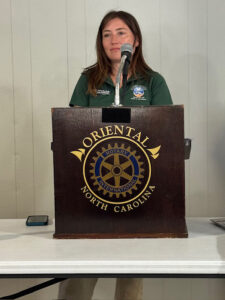
Riverkeeper talks programs with Oriental Rotary Club
June 25th 2025

Riverkeeper, intern scout Smithfield trash trap locations
June 25th 2025
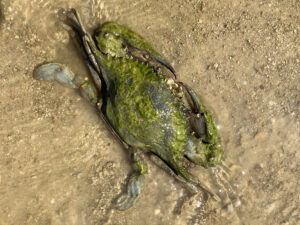
Fish kill reported on the Neuse
June 19th 2025
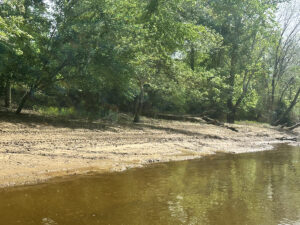
Riverkeeper meets with ATV park attorney
June 19th 2025

Riverkeeper samples scene of Rocky Mount sewer spills
June 19th 2025
